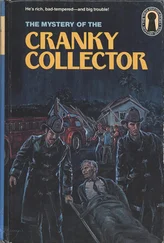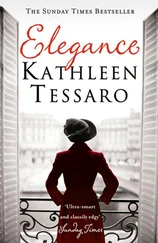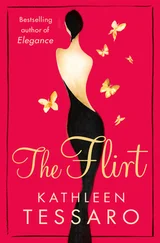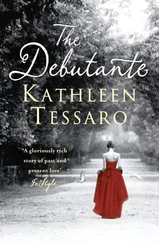1 ...8 9 10 12 13 14 ...77 For an entire two weeks, Rita supervised every move Eva made; correcting her toilet-bowl cleaning technique, insisting that she sweep each carpet in perfectly straight vertical lines and then again horizontally, chastising her for the lack of artistry with which she arranged the linen hand towels, all the while attacking her youth, personal appearance and general foreignness as she felt appropriate.
Eva soon learned that when Rita was drunk she was much easier to handle. In fact, in the canteen after her shift she could be almost funny.
Back in Lille, Eva had a grandfather who was a drinker. When her grandmother needed him to be sober for an important event, she always treated him to his own personal supply of chocolates. ‘The sugar calms him,’ she used to say.
Eva couldn’t afford chocolates but she began to make Rita cups of very sugary tea throughout the day. Rita in turn grumbled and complained but drank them just the same. While it didn’t make her pleasant, at least it kept her from being downright vicious.
By the time Eva ended her training period, she had mastered all the arts of domestic service, including the proper display of hand towels.
Rita had gained seven pounds.
Soon Eva adapted to the regular rhythm of hotel life. In the evenings the girls laundered and ironed their clothes, mended and gossiped. There was a radio in the pantry of the lower kitchen that the staff crowded round, listening to the Silvertown Cord Orchestra or the comedy antics of Amos ‘n’ Andy. Drinking was out of the question; Mrs Ronald was very strict about that. And the only dancing they did was with each other. A tall, lanky black girl named Wallace was the recognized Charleston expert and willing to teach anyone for the price of a Coca-Cola, even though chances to use their new-found skills were next to nil. On Saturday evenings, they went to confession at St Boniface. On Sunday mornings, early, they went to Mass.
There were occasional treats – matinée performances tucked into the balcony at the Strand theatre, followed by a sandwich at the Riker’s Drug Store counter. Sometimes, they went to stare at the lights of Times Square, waiting to see the crowds leaving the theatres and discuss what the fashionable women were wearing.
Other times, they strolled across Central Park to Fifth Avenue, walking down past the grand department stores but never daring to go inside. There were places in the East End, small shops run by immigrants where fabric could be purchased, shoes traded, coats and jewellery pawned.
Sis took Eva to the public library and showed her how to get a card. Every week, Eva read her way through the works of Charles Dickens, Jane Austen, Anthony Trollope, Henry James and Elizabeth Gaskell. She dreamed of heroines from modest backgrounds attracting unprecedented attentions, soaring tales of love across social divides and sudden unexpected reversals of fortunes. In these pages, anything was possible, even for a girl like her.
‘The trouble with you is, you’re a romantic,’ Sis pronounced one Sunday afternoon, as they all sat knitting by the radio in the kitchen. ‘That’s not going to get you anywhere. You need to be practical. Romantics get their hearts broken too easily.’
‘That’s true,’ Rita agreed for once, resting her swollen feet on an empty vegetable crate. ‘You need a man with a good solid job who doesn’t drink or gamble. One that won’t hit you or the kids too much and that goes to church. None of my husbands ever made it to Mass. Let that be a lesson to you,’ she warned. ‘Truth is they were never sober enough to make it out of bed on a Sunday morning.’
Sis considered. ‘Maybe my Charlie knows someone.’
She was already engaged to a young doorman from the Iroquois hotel and was the supreme social architect of the backstairs staff. Sis treated marriage as a coup; a strategic overthrow of the natural male instincts which must be systematically attacked and maintained through military ruthlessness and fortitude.
At seventeen, she’d already vetted and refused more men than the rest of them combined. With her first month’s earnings she’d invested in a bolt of real lace from Ireland for her wedding dress. Sis knew which neighbourhood she wanted to live in, right down to what houses she would accept and had long decided on the names and professions of her future children (all of them boys). Despite her modest circumstances, she’d amassed a considerable collection of housewares, china and linens, stored in a trunk underneath her bed that she referred to as her ‘hope chest’.
Charlie was only a few years older than Sis and had yet to receive so much as a kiss from her. But Sis already managed his money and his career; she had him working extra shifts and taking an evening class in accounting with a view to heading up reception some day.
And he was in awe of her. Sometimes he came to meet them in the park or after a movie (Sis wouldn’t let him sit next to her in the dark in case he got the wrong idea), and Eva could see the mixture of fear and pride in his face when he was around her.
‘Pick a man with an overbearing mother,’ Sis advised. ‘Charlie’s mum is a widow with seven kids to feed and only a Bible to keep her warm. Charlie feels guilty from the moment he wakes up in the morning and what’s more, he’s used to taking orders from a woman.’
Eva nodded.
She never argued with Sis’s advice. It wasn’t sensible if you wanted a quiet evening.
‘Good God!’ Rita laughed, jerking her head towards Eva. ‘You’ve got your work cut out with that one! She’ll be a lot tougher to shift than you, Sis.’
Everyone turned to Eva.
She felt her cheeks colour.
‘She’s not done growing yet, is all!’ Sis shot back. ‘Besides, you managed to get a few husbands and you’re not exactly the Queen of Sheba!’
Still, when the conversation changed, Eva got up and went outside.
It was true: she was too thin, her face too long; her features seemed stretched out like a cartoon character from the Sunday papers.
Sis was tall and blonde, like a smiling Gibson Girl in an advertising poster.
Eva was short and dark and foreign looking.
She wandered out into the back alleyway, sitting alone on the back steps. The warm humid air of New York clung to the night, unwilling to relinquish its suffocating hold. And yet to Eva, the city had an underlying hum of possibility; a constant forward motion that promised, no matter what, that change was on its way.
In every book she’d ever read, the heroine was subject to self-doubt and unjust criticism. And in every case, it only served to harden their resolve. Besides, what did Rita know? If Eva wanted a life scrubbing toilets, she could follow Rita’s advice. But she didn’t. She wanted something more.
She wasn’t certain what, exactly, or how she would get it. But for right now, she didn’t need to think about that. She could simply sit, basking in the glow of not-so-distant stars, which must be somewhere, blinking behind the thick layer of cloud that masked the evening sky.
The offices of Frank, Levin et Beaumont were located on the Rue de Rivoli, on the upper floors of one of the galleried arcades. Grace had the last appointment of the afternoon, and, after a somewhat confusing conversation with the secretary in her halting French, had been shown into Monsieur Tissot’s chambers, which occupied a corner, with two windows overlooking the north wing of the Musée du Louvre.
Grace sat, still in her overcoat, her handbag firmly anchored on her lap. It felt unreal to be here, like an overly vivid, slightly alarming dream.
She wasn’t used to travelling on her own. Mallory had insisted that she stay at the Hôtel Raphael, where she’d been with her mother before the war. Located near the Champs-Élysées, it was discreet and quietly grand; much nicer than anything Grace would have chosen for herself. Her room wasn’t terribly large but it had high ceilings and was decorated in soft pink and the palest eau-de-Nil, feminine candyfloss colours mirrored in the silk taffeta swags and thick, embroidered bedspread. There was even a chandelier above her bed. Lying on her back last night, she’d stared at it, amazed. Clearly the French expected something rather more interesting to occur here than the English did.
Читать дальше
Конец ознакомительного отрывка
Купить книгу












